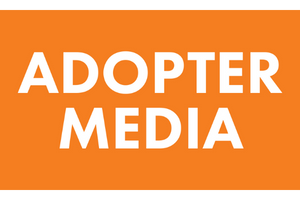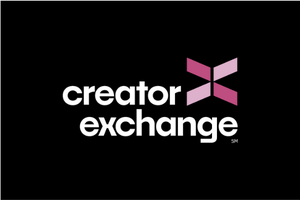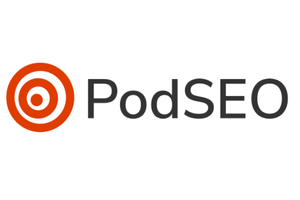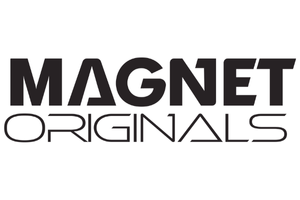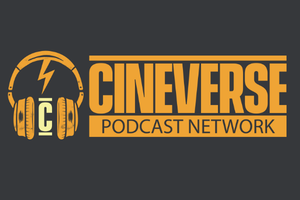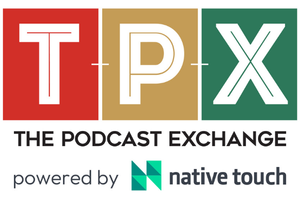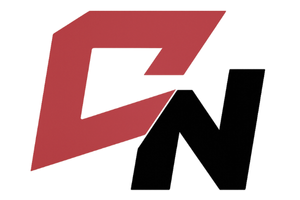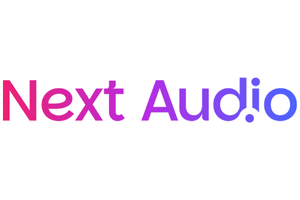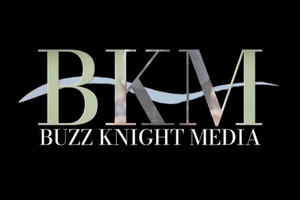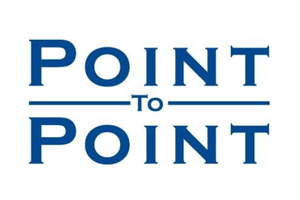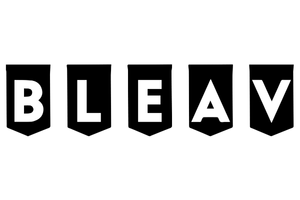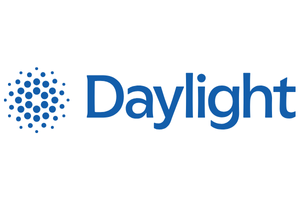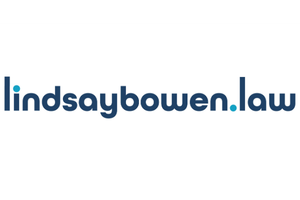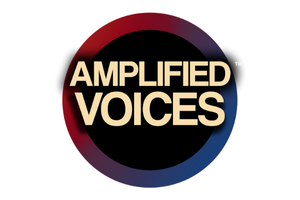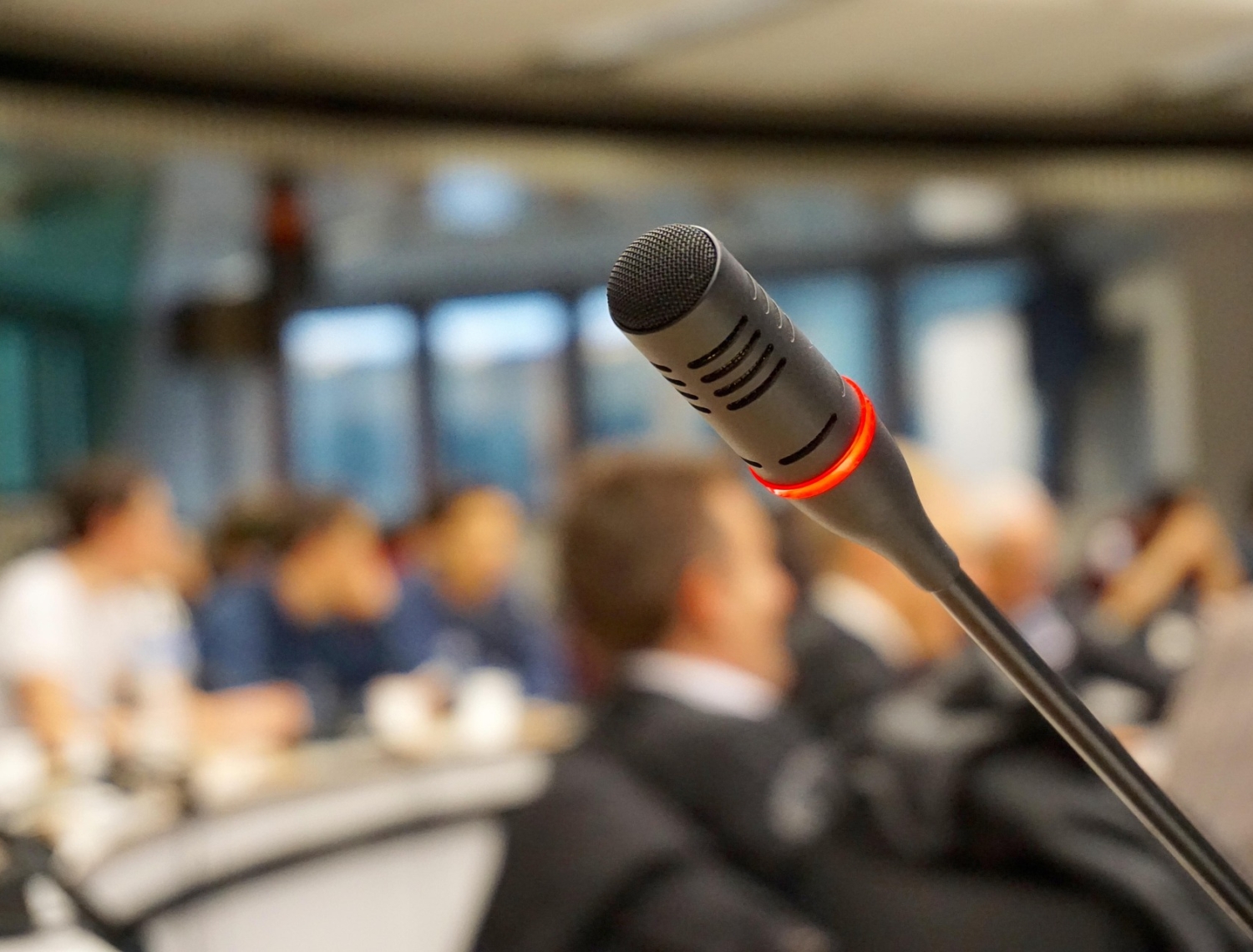The recent article in Hollywood Reporter about Inception Point AI’s venture to create thousands of AI-generated podcasts a week has certainly created an imbroglio in the podcast community. I chose “imbroglio,” because I think it’s more than a kerfuffle, and I’m a Webster so I get to use all the words. Podcast agency Adopter Media has issued a strong call for disclosure to protect advertisers from low-quality content. Adam Bowie has sampled the content and found it…wanting. You can find some other choice quotes from industry leaders in the Podnews coverage here.
I have my own personal feelings about this, of course, but my training is in consumer behavior, not hot takes, though occasionally the latter are birthed from the former. I wanted to know how our audience of humans feels about this. Luckily, this has been a brewing issue for several years now, so there is a bit of a body of work on the topic.
When I was at Edison Research, I spent many years working on the annual consumer survey for the Audio Publishers Association, a trade organization serving all aspects of the audiobook industry, including narrators. I don’t recall the exact year we started asking this question for internal purposes, but in 2023 the APA released this stat from the survey: 77% of audiobook listeners would be “willing to try” an AI-narrated audiobook. This year, in the 2025 APA Consumer Survey, that number has dropped to 70%.
Three things about that number, for context: first, 70% is still well in the majority, so the drop isn’t a story of outright rejection. Second, the sample here is audiobook consumers, not podcast consumers, and there are certainly some key differences in those universes (male/female composition, for instance). Finally, the question is a pretty low bar, really. It’s a hypothetical about willingness to try, which is as much a gauge of open-mindedness as it is receptivity to AI. Still, with a sizable portion of the US population, in a hypothetical scenario, the use of AI wasn’t rejected outright.
I thought we could dig into that a little bit more in this year’s Podcast Landscape 2025 fielding, so we threw in a question for Americans 18+ who had ever consumed a podcast (75% of the population). Rather than ask about trying a hypothetical new podcast, we asked how people would react if they learned that one of their favorite podcasts featured AI-generated voices in either the content or the advertising. Would they be more or less likely to continue listening to or watching that podcast?
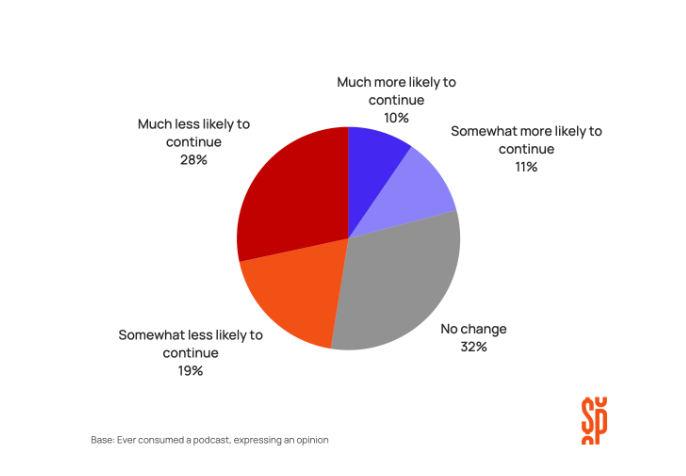
With a more specific question, and among podcast consumers, the answers are clearly mixed. While 21% say that they would be much or somewhat more likely to continue with the podcast, 47% are less likely – with 28% much less likely. Keep in mind that this question was asked about one of the respondents’ favorite podcasts, a known commodity.
So clearly there are some potential minefields to navigate here. I dug into the less/more likely data a little bit more to see if there were any associated variables that could predict the response. I jumped immediately to age, but the “less likely” among 18-24s (45%) wasn’t that much different to the stat for 55+ (49%). There wasn’t really even a material difference between casual consumers and heavier consumers of podcasts – the ratio of negative to positive was nearly identical.
Finally, after an extra large Dunks’ coffee and a Concerta™, I found it – educational attainment. Here are the combined “much/somewhat less likely” to continue percentages by education:
Did not graduate High School: 37%
High School Graduate: 39%
Bachelors Degree: 46%
Post-graduate Degree: 49%
Let me say immediately that educational attainment does not imply knowledge or lack thereof about AI – it’s such a part of the zeitgeist in the developed world now that I think most people have some opinion. But I think it is fair to note that the jobs AI is coming for at the moment are white collar jobs, and white collar jobs are a trailing variable of educational attainment.
So the increased reluctance to embrace AI-voiced podcasts amongst those with college educations may be less due to ignorance, and more to an informed wariness about the existential threat this technology has and will continue to have for an entire class of workers. To succeed with this kind of content will not only require excellent execution, but also a means to address this wariness. AI may be coming to podcasting, but no one can be made to like it.
New Partners
Sounds Profitable exists thanks to the continued support of our amazing partners. Monthly consulting, free tickets to our quarterly events, partner-only webinars, and access to our 1,800+ person slack channel are all benefits of partnering Sounds Profitable.
- Table Read Podcast / Manifest Media Network - Table Read is MTV Unplugged for scripts, where icons like Mark Hamill, Rosario Dawson and Hollywood's best working talent perform award-winning unproduced scripts with the chaos of Hot Ones and magic of an after-party: #1 Fiction Podcast, 30+ awards, revolutionary talent equity.
Want to learn more about partnership? Hit reply or send us an email!

















